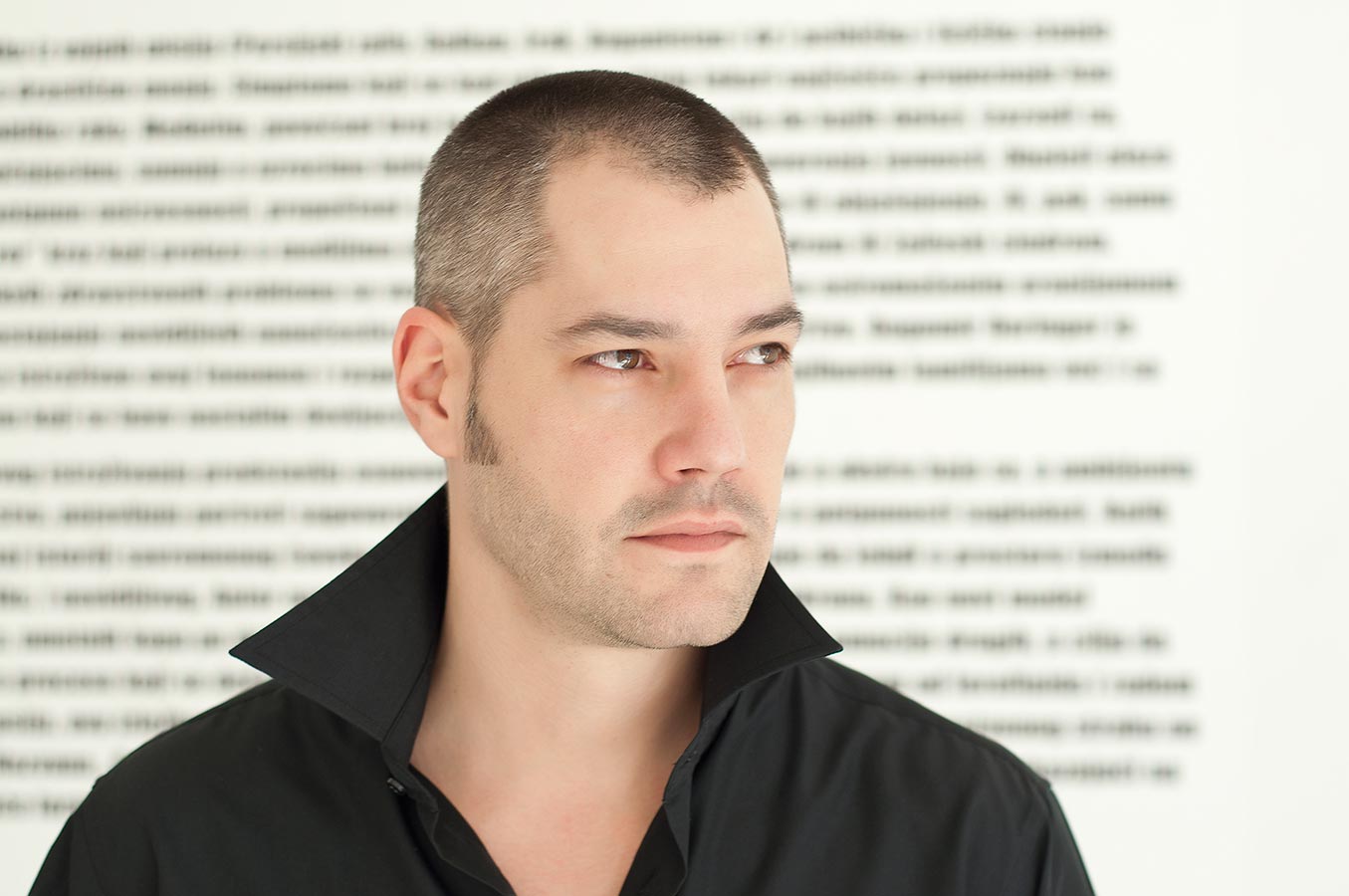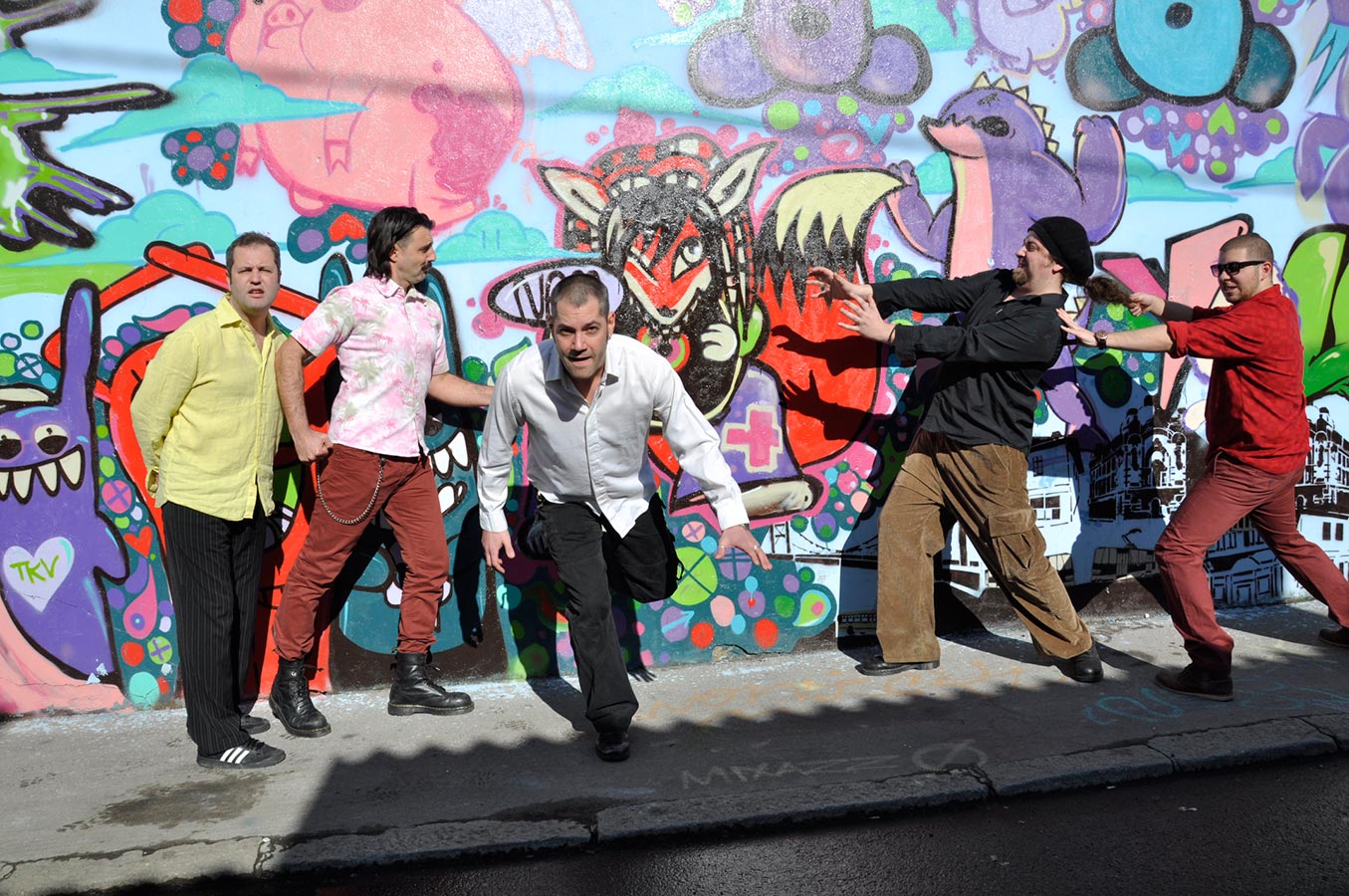Vasil Hadzimanov is a well-known musician, jazz pianist, and composer.
He is a talented musician from the Balkans who believes that music fills and unites people, increasing their love of music and each other. He sees beauty in the sound of a piano and has dedicated himself to music out of his passion for it.
Read and watch the full interview about Vasil’s experience at Berklee in the US, the importance of coming together and exchanging friendships and cultures and the future of jazz in the Balkans.
#mnetoday: Today we are at the Cattaro hotel and we are speaking to one of the most talented jazz musicians in the Balkans…
VH: … in the world
#mnetoday: …in the world. This musician introduced a completely authentic and new approach to fusion and jazz music.
VH: Thank you
#mnetoday: Vasil Hadzimanov, it is a pleasure to meet you.
VH: Nice to meet you too.
#mnetoday: Vasil, please tell us how did you start playing the piano? Why did you choose the piano and why jazz?
VH: Well I didn’t choose the piano; the piano chose me. I started playing the piano when I was 5 or 6 and I decided to go to a primary school of music because my parents are famous musicians. My father is a composer, actor, and singer. My mother was a singer and my aunt that I’m actually performing with at Kotor Art is, obviously, a singer too. So it was a logical choice for me to attend music school to see what would happen. When they asked me what instrument I would like to play I said piano. I didn’t even think about it; I was just a kid. When I finished primary school, I went to a high school and also studied music. In Belgrade, Serbia, we have high schools that are specifically there for music. But even then I wasn’t really sure that it was a good idea. I wasn’t that much into classical music; I respected it, I liked it but I never really thought that I was a performer of classical music. Then I discovered jazz at the age of about 14 and started searching around in my parents and my aunt’s records and that’s where I found some of the records that I love to this day and that actually influenced me the most from all jazz greats like Monk and Oscar Petersen, to more contemporary musicians like Herbie Hancock and Keith Jarrett, Weather Report, Miles Davis and so on. I didn’t really understand the music but I felt it; something happened to me. That’s when I started improvising and trying to play the jazz standards and soon enough I was finishing high school and I wanted to go to Berklee and that’s how the whole jazz thing really had a closure of some kind in terms of education. In Berklee, that was serious stuff, you learn a lot from amazing teachers you play a lot with amazing musicians so that was my road to jazz music.
#mnetoday: What did the whole process of education mean to you? And what is the biggest lesson that you learned while you were at college and in the US?
VH: If you’re interested in playing Jazz music then there’s no better place to go than the United States. It’s their music, basically, it’s their folk music or it’s the music of African-Americans who live in America. Berklee is one of the best, if not the best school for, not only jazz, but for modern music, contemporary music and for many different ways to express yourself in terms of searching for that thing – when you go there you might have something in your mind that you’re interested in but then you meet all these amazing musicians, composers and arrangers and producers and all kinds of different experts in music; young, talented musicians who are already experts and then you might switch to something else or you don’t even have to switch you can gather knowledge from different sides. You can get classes in film scoring even though you’re starting out on saxophone. That’s what I did, I actually learned a lot form different perspectives in music and simultaneously I played a lot and that’s the best class that you can get is to play with musicians that are better than you and that know more than you and that was an instant education for me. I spent three years at Berklee. I graduated early because I was given some credits from the education I had in Serbia and then I decided to stay for 2 more years and I played in Boston and New York with some of the greatest young musicians then, now they’re not so young, like myself also, but nevertheless they’re really the best.

Photo credit: Vasil Hadzimanov gallery at www.vhband.com
#mnetoday: Do you still play with them and do you still keep in touch?
VH: Yes, from time to time we manage to bring someone over – one of them, David Binney, is an amazing saxophone player from New York and also an amazing composer and producer. He came and we recorded a live album with my band, Vasil Hadzimanov band and it was released by MoonJune Records from New York and we had around 50 different reviews from all over the world which all had the highest praise for the album. One of those reviews got us onto the list of the best albums of Downbeat magazine for the last year, so yes, David is one of the guys that I used to play with in New York and a friend of mine but unfortunately I don’t have the chance to bring over more of my colleagues from over there, that I’d like to.
#mnetoday: In the US you were working at Tomandandy studio as a composer and you composed the music for the movies Killing Zoe….
VH: No, it wasn’t me writing the music, Tomandandy did that. It’s like a reference, when you write down your bio, you write down whoever you worked with and also whoever they worked with. If they don’t know who Tomandandy are then they can relate to Killing Zoe the movie or anything else that they did. They did a production for Lori Anderson and a lot of great stuff. I worked in their studio when I was working in New York, programming music and I worked on some kind of software that was top secret so I don’t even know what it was but it was a great experience and although they got me an artist visa to come back and work with them I never went back; I decided to stay in Belgrade and I’m still in Belgrade basically 20 years later.
[quote]I managed to put this band together and we’ve been playing together for 20 years and we’ve released 6 albums and I’m happy despite all the struggles and the hard things that stop one from really creating and having the freedom to play anywhere you want to. [/quote]
#mnetoday: Why did you decide to come back, what was your motivation? In one of your biography descriptions it said that you wanted to finish something that you had started in the US and that’s why you came back to the Balkans.
VH: Well I never really know the right answer to this question. It’s a matter of heart, basically, at one point, after living in America for 5 years, I really felt homesick although I had a great job at Tomandandy and playing with David Binney and lots of other amazing musicians I didn’t feel good inside, in my heart, which really matters to me and I returned and I never regretted it. It’s hard living in Serbia or the area of the Balkans and actually be a jazz performer and composer in a place where jazz is not really the most popular music although now it’s not the most popular music anywhere. It’s not easy but I still feel like I did the right thing. I managed to put this band together and we’ve been playing together for 20 years and we’ve released 6 albums and I’m happy despite all the struggles and the hard things that stop one from really creating and having the freedom to play anywhere you want to. One of the things that is not good around here, the claustrophobic thing that is happening with small countries that used to be part of Yugoslavia is that they always discuss the same subjects – lots of nationalist subjects. It’s wasting time, if you ask me, instead of getting together again and doing business and exchanging culture, friendship and everything. So that’s basically what’s stopping us from really playing even more and going further but luckily this release that has just happened is going to help us to go over the border more often and to present our music anywhere in the world.
#mnetoday: You just mentioned that you don’t think jazz is popular anywhere in the world. What do you think happened with jazz music and what’s the future for jazz music?
VH: Nobody knows that and it’s hard to tell. The culture and creative music around here is not really supported. You have some festivals like Kotor Art which are great and you have certain enthusiasts that are willing to book different bands and performers for concerts but the ones that have to think about the culture and the music to help it and to support it they aren’t doing that. It’s the same in Montenegro or in Serbia, there’s not enough as far as I’m concerned; a lot of cheap music are overwhelming the youngsters and they don’t even know what jazz is. You can’t hear it on radio or anywhere basically so it’s really hard to tell what’s going to happen. The good side of the story is that there are a lot of musicians, a lot of young musicians, very talented musicians from age 14, 15 to 25, 26 that don’t care about the circumstances that surround the scene and all the tough things that are happening that stops them from performing. They don’t care; they’re making great music they’re playing amazing and they’re much better than we used to be when we were kids so that’s something to look forward to.
#mnetoday: What is the most memorable advice given to you by any of your teachers and who was the teacher?
VH: Oh that’s a hard one. I can’t really remember the one sentence or bit of advice. My teachers at the music schools were really good, I was really happy with them. Both the classical and the jazz ones. My teacher in Berklee, Ray Santisi, was the teacher of Keith Jarrett and Chick Corea. I worked for the best. But one of them is crucial because at one point when I was searching for information about jazz music, living in Belgrade, Yugoslavia, in the late 80s – when I started to listen to jazz you couldn’t find anything; there was no internet, there wasn’t any information of that kind so you had to rely on word-of-mouth conversations and the only one that really helped me was Vojin Draskoci he is an amazing late bass player and composer and he actually worked with me and that’s how I ended up going to the United States.
#mnetoday: Regarding your recent album, “Alive”, it was quoted that it is: “unpredictable and unpretentious, at times hypnotic, at times pushing the envelope and flattening boundaries”. What message would you wanted to convey with this album?
VH: There are a lot of messages, you have to find yourself in it. When my band and I make music we don’t really have a certain concept or idea that has to be put out and everything has to be framed that way. We let it lose and what comes naturally and spontaneously – that’s what happens – and then we decide if we like it or not and if it has anything to do with any of the other material that we’re already playing or have composed. So the messages in this kind of music is that you find your own messages. You have to relate to whatever we are sending you and if you see it in your own light and if in your own way you understand something then that’s okay. I’m not going to write down for you what it means. It’s very open and very free and as long as you feel something that means that we have succeeded.

Photo credit: Vasil Hadzimanov gallery www.vhband.com
#mnetoday: Name three of the most prominent jazz musicians in the Balkans.
VH: I would like to mention the young cats, the ones that I talked about earlier. One of them is our drummer, Predrag Mltuinović. He has been playing with us for 5 years now and he was also planning on going to Berklee. I don’t know if he’s going to succeed because he needs a really big scholarship; but he’s a phenomenal musician and he represents the young generation that I was talking about and he can play with anyone. David, when he was in Belgrade and heard him and Pera Krstajic, who is another one that I can mention, who is an amazing bass player who is at Berklee now, David immediately called him and made a new trio with Pera and Predrag and they went to play at a jazz festival in Malta and recorded an album together and Pera was then 18 and Predrag was about 23. Really he was coming from Serbia and had never studied anywhere until Pera when to Berklee but he was amazing even before that and the third one is also very young Rastko Obradović he was just finishing his studies in Norway. All three of them are exceptional and you can basically put them on any stage to play with any of the greats and I’m sure everyone will be blown away by them.
#mnetoday: If you were sent to an island for a year, which 3 musical albums would you take with you?
VH: I would take an iPod, that’s what I would take, a battery that works on solar energy and then I wouldn’t have to take 3 albums I could take 3000 albums.
#mnetoday: What sacrifices have you had to make in order to become a successful musician?
VH: Oh terrible sacrifices, I can’t even talk about it. No, everyone has to sacrifice in some way because if you want to do what you like in life and if you only want to do that, then you have to do everything in your power to accomplish that. So my time in the US wasn’t easy and when we talk about it, it seems like he was studying and he was playing with all these great musicians, he got a job, wonderful. But it wasn’t like that all the time. It’s not easy to move to a completely different country and to start over especially in New York. New York is a very tough city to live in, now even more than then. Not only that, in terms of financial troubles that I went through, I wasn’t poor or sleeping on the street but there were times that we were struggling but I managed to pull through and learned to continue working only on projects that I think are worth working on. It doesn’t have to be jazz, it can be film scoring, it can be any kind of band that I play with, but all the choices I made was because of the music that I was working on and not because of the money, not because of the fame or whatever might be the reason to be in the music business.
#mnetoday: What is your idea of perfect happiness?
VH: Perfect happiness? Let’s pretend that it exists. Music all around me, happiness, love and peace, world peace as they say in the beauty pageants. But I really believe that, I think that the only way for the human race to survive is to stop talking about stupid things like religion, race, nationality and all of that; I’m so sick of it. And I think in 2017 it’s about time to stop all that talk and turn the other way and we’re all brothers and sisters and just enjoy life.
#mnetoday: And have peace…
VH: … and have world peace.
#mnetoday: Thank you so much for the conversation. That was Vasil Hadzimanov
VH: Thank you.


